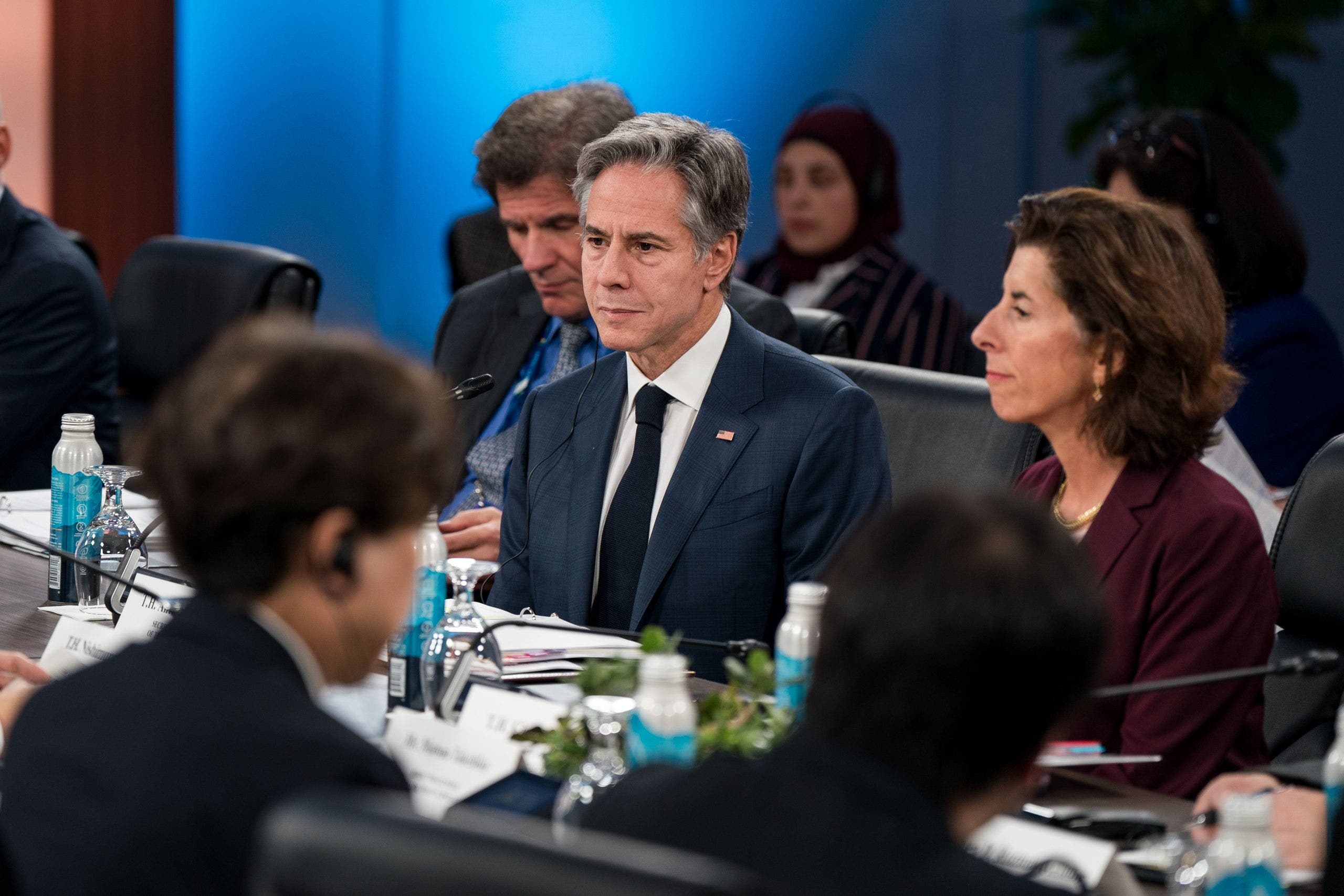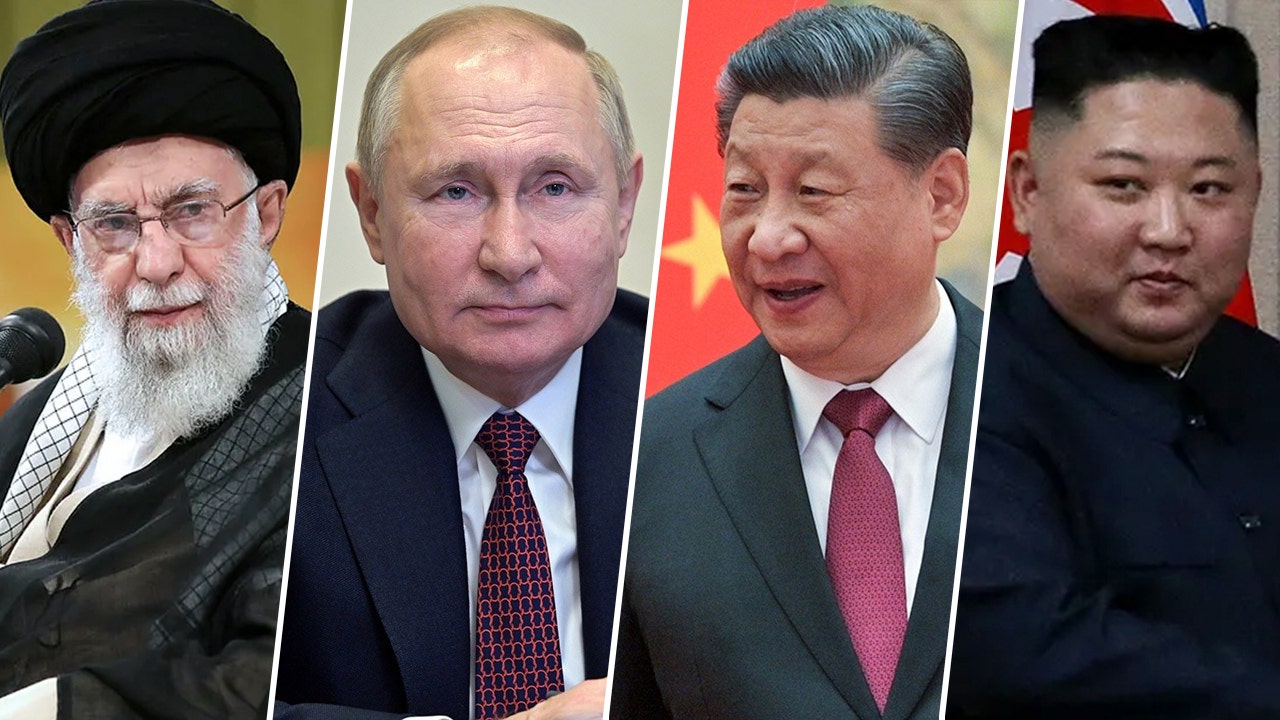North Macedonia will head to a presidential runoff after no candidate secured enough votes to win outright in Wednesday’s first round of balloting held as the country seeks to enter into the European Union.
The second round of voting on May 8 will coincide with parliamentary elections. Near-full results from Wednesday’s vote showed a strong shift in favor of the candidate backed by the center-right main opposition coalition, VMRO-DPMNE.
17 MACEDONIAN POLICE OFFICERS CHARGED WITH HELPING PRISONERS ESCAPE
With about 92% of the votes counted, Gordana Siljanovska Davkova was well ahead with just under 40%. Incumbent President Stevo Pendarovski, who is seeking a second five-year term with support from the country’s governing social democrats, was second with nearly 20%, according to the State Electoral Commission.
Gordana Siljanovska Davkova, presidential candidate backed by the opposition conservative VMRO-DPMNE party, exits the booth before casting her ballot for the presidential election at a polling station, in Skopje, North Macedonia, on Wednesday, April 24, 2024. People are lining up at pools to cast their votes in a peaceful atmosphere, hoping that the next president will be able to bring the country into the European Union. (AP Photo/Boris Grdanoski)
Pendarovski was followed by a government-allied candidate from the ethnic Albanian minority, Foreign Minister Bujar Osmani, with 13.6%. Turnout was 49.75%.
To win outright, a candidate needed to win support from more than 50% of registered voters. So Siljanovska Davkova and Pendarovski will meet in the presidential runoff.
Hopes are high in North Macedonia that the president will oversee long-anticipated entry into the EU.
The small Balkan country has orbited the 27-nation bloc for nearly two decades with little to show for its efforts.
Addressing dozens of celebrating VMRO-DPMNE supporters outside the party headquarters in central Skopje late Wednesday, Siljanovska Davkova insisted on her pro-EU credentials.
“This is the beginning of a new era, this must be a new course, I should call it the European course,” she said. “Let us prove that we have always (belonged to) Europe.”
Pendarovski voiced disappointment with the result. But he said he hoped to do better in the second round, including with the support of the country’s ethnic Albanian minority that represents about a quarter of the population.
Seven candidates were running for the largely ceremonial position, with the brief campaigning period focusing on EU accession, the rule of law, fighting corruption and reducing poverty.
Electoral commission head Aleksandar Dashtevski said earlier Wednesday that voting was going smoothly, with only a minor technical problem with biometric devices at some polling centers which was quickly resolved.
Siljanovska Davkova, 70, and Pendarovski, 61, agree that their country belongs in the EU. But they have differed on how to deal with neighboring Bulgaria’s insistence on Skopje enshrining in its constitution recognition of a Bulgarian ethnic minority. EU member Bulgaria has said it will otherwise block North Macedonia’s bloc membership bid.
North Macedonia has been a candidate to join the EU since 2005, but membership talks only began in 2022 and the process is expected to take years.
Voter Stavre Temelkovski said he had high expectations that North Macedonia would become a full-fledged EU member soon.
“I expect a civic movement to win, for us to be a part of all those pro-Western systems, and to start a process of healing for a state which has waited for almost three decades,” he said. “Many generations are exhausted.”




